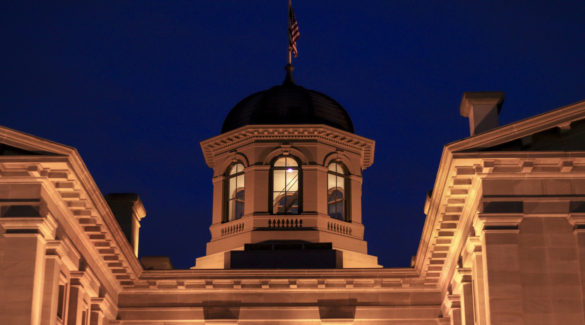After years of dubious rulings, the Ninth Circuit Court of Appeals is rendering rational, reasonable, Constitutional judicial decisions:
- When the Ninth Circuit Court Unanimously Says You’ve Gone Too Far Left….
- Ninth Circus Court No More? Trump-McConnell’s Judges Have Made Huge Differences Everywhere
The U.S. Supreme Court, meanwhile, has recently been uncorking a lot of 2020-esque, anti-Constitution wild pitches. Each of these is a different case and ruling:
- Chief Justice Roberts Sides with Liberals and Mocks Conservatives
- Roberts Sides with Supreme Court Liberals
- Roberts Sides with the Liberals, Again
- Justice Gorsuch Torches Roberts and the Liberal Wing of SCOTUS
But don’t get too excited about Gorsuch. He’s no rebel:
- Uh Oh: Gorsuch Sides with Liberal Justices
- Gorsuch Sides with Liberals
- Justice Gorsuch Sides with Liberals and in 5-4 Decision
- Gorsuch Sides with Liberal Bloc Once More
The new Ninth Circuit Court is proving to be outstandingly constitutional on protection of intellectual property (IP): Intellectual Property Rights Affirmed by Ninth Circuit Court of Appeals in Qualcomm Case.
IP is specifically protected in the Constitution:
“The Congress shall have power … To promote the Progress of Science and useful Arts, by securing for limited Times to Authors and Inventors the exclusive Right to their respective Writings and Discoveries….”
The Ninth Circuit Court of Appeals may have surpassed the U.S. Supreme Court at respect for the Constitution, at least on IP protection. We will soon find out: Supreme Court to Hear Google V. Oracle on October 7.
Google is the planet’s biggest IP thief this side of Communist China. In the case under appeal to the Court, Google used 11,500 lines of Java code from Java owner Oracle.
Google did so in creating Android, which is now the world’s #1 mobile operating system (OS), with which they have probably made a trillion dollars thus far. Google did this without Oracle’s permission, and they knowingly did so.
Here’s how we know Google knew they needed Oracle’s permission:
“Google and Oracle were negotiating terms for licenses for Google’s use of Oracle’s 11,500 lines of Java code. Until one day Google … just stopped negotiating.
“Google then released its Android OS. With Oracle’s 11,500 lines of Java – but without any licenses to use it.”
If you’re looking to secure licenses (permission), you’re tacitly admitting you need to secure licenses (permission).
Google stole the code. It is a blatantly obvious, open-and-shut case.
So Oracle sued. To which Google responded with one of the dumbest legal arguments you’re likely to find, ridiculously claiming copyright “fair use”:
“‘[In U.S. copyright law] the doctrine that brief excerpts of copyright material may, under certain circumstances, be quoted verbatim for purposes such as criticism, news reporting, teaching, and research, without the need for permission from or payment to the copyright holder.’
“‘Fair use’ – is me briefly excerpting from someone else’s writing to criticize it in my writing. Or report news, teach or issue reports about it in my writing.
“As I am currently doing with this excerpted legal definition of ‘fair use.’
“‘Fair use’ should exist almost solely in the realm of the written word. Because that’s the only realm in which it makes any real, consistent sense.
“‘Fair use’ absolutely should not be applied to the realm of computer code. Because it is absurd to attempt to apply it to computer code.
“You can not engage in criticism, news reporting, teaching or research – using lines of computer code. The notion is patently absurd.”
The U.S. Supreme Court is about to encounter Google’s nonsensical argument in defense of its theft.
It is a blatantly obvious, open-and-shut case.
Even the Supreme Court will see it.
Right?…
[Originally posted on RedState.]











